-
 Bitcoin
Bitcoin $81,533.6725
5.67% -
 Ethereum
Ethereum $1,587.2559
7.63% -
 Tether USDt
Tether USDt $0.9999
0.04% -
 XRP
XRP $1.9923
8.74% -
 BNB
BNB $577.9735
4.04% -
 USDC
USDC $1.0000
-0.03% -
 Solana
Solana $114.6754
6.94% -
 Dogecoin
Dogecoin $0.1560
6.76% -
 TRON
TRON $0.2389
4.11% -
 Cardano
Cardano $0.6198
7.80% -
 UNUS SED LEO
UNUS SED LEO $9.3868
2.77% -
 Chainlink
Chainlink $12.3289
8.26% -
 Avalanche
Avalanche $18.0099
8.03% -
 Toncoin
Toncoin $3.0232
-0.53% -
 Stellar
Stellar $0.2336
5.14% -
 Hedera
Hedera $0.1700
10.54% -
 Shiba Inu
Shiba Inu $0.0...01194
8.91% -
 Sui
Sui $2.1413
8.31% -
 MANTRA
MANTRA $6.7390
7.65% -
 Bitcoin Cash
Bitcoin Cash $297.2313
8.70% -
 Litecoin
Litecoin $74.1125
5.07% -
 Polkadot
Polkadot $3.5508
2.17% -
 Dai
Dai $1.0000
-0.01% -
 Bitget Token
Bitget Token $4.2491
3.82% -
 Ethena USDe
Ethena USDe $0.9988
0.00% -
 Hyperliquid
Hyperliquid $13.8480
9.34% -
 Pi
Pi $0.5924
4.82% -
 Monero
Monero $203.3177
4.27% -
 Uniswap
Uniswap $5.2004
6.70% -
 OKB
OKB $53.5321
3.78%
Bitcoin wallet address generation and management
A Bitcoin wallet address, derived from a public key, is used to send and receive Bitcoins, but losing the associated private key means losing access to your funds.
Apr 01, 2025 at 08:07 pm
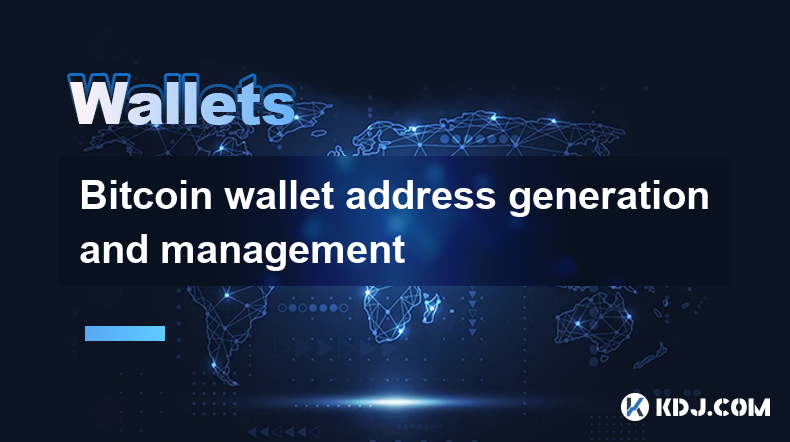
Understanding Bitcoin Wallet Addresses
A Bitcoin wallet address is essentially a unique identifier, similar to a bank account number, used to receive and send Bitcoins. Unlike a bank account, however, you don't "own" the address; you own the private key associated with it. The address itself is derived from the public key, which is in turn derived from the private key through cryptographic processes. Losing your private key means losing access to your Bitcoin. It's crucial to understand this fundamental relationship.
Generating a Bitcoin Wallet Address
Generating a Bitcoin wallet address involves several steps, typically handled by wallet software or hardware. The process leverages cryptography to ensure security and uniqueness. It doesn't involve a central authority; the address is generated locally on your device. This decentralization is a core tenet of Bitcoin's security model.
- Key Pair Generation: Your wallet software first generates a random private key. This is a long string of characters, and it's absolutely crucial to keep this secret.
- Public Key Derivation: Using cryptographic algorithms (typically elliptic curve cryptography), the software derives a public key from the private key. This public key is also a long string of characters, but it can be shared publicly.
- Address Generation: Finally, the public key is hashed (processed through a one-way cryptographic function) multiple times to create the Bitcoin address. This address is what you share with others to receive Bitcoin. The process ensures that even if someone knows your public key, they cannot easily determine your private key.
Managing Your Bitcoin Wallet Addresses
Managing your Bitcoin addresses effectively is paramount to maintaining the security of your funds. Poor management practices can lead to loss of funds due to theft or accidental deletion of private keys. Several key aspects need careful consideration.
- Secure Storage of Private Keys: This is the most crucial aspect. Never share your private keys with anyone. Use reputable wallet software or hardware wallets designed for secure key storage. Consider using multiple layers of security, like password managers and biometric authentication.
- Backup and Recovery: Always back up your wallet's seed phrase (a list of words representing your private key) in multiple locations, ideally offline. This seed phrase allows you to recover your wallet if your device is lost or damaged. Never store it digitally without strong encryption.
- Address Reuse: While technically possible to reuse a Bitcoin address, it's generally not recommended for privacy reasons. Each transaction associated with an address becomes part of the public blockchain, and reusing addresses can link transactions together, potentially revealing information about your spending habits. Many wallets automatically generate new addresses for each transaction.
- Software vs. Hardware Wallets: Software wallets are convenient but can be vulnerable to malware and hacking. Hardware wallets offer superior security as they store your private keys offline, making them less susceptible to online threats. The choice depends on your technical skills and risk tolerance.
- Regular Software Updates: If using software wallets, ensure you keep them updated with the latest security patches to protect against known vulnerabilities. Outdated software can expose your wallet to attacks.
Understanding Different Types of Bitcoin Wallet Addresses
Bitcoin uses different address formats, each identified by a prefix. These prefixes indicate the type of address and the network (mainnet or testnet). Understanding these differences is important for avoiding sending funds to the wrong network or using an outdated address format.
- Legacy Addresses (P2PKH): These are the oldest type of Bitcoin addresses, starting with a "1". They are still functional but considered less private than newer address types.
- SegWit Addresses (P2SH-SegWit & Bech32): These are newer address formats that offer improved transaction efficiency and privacy. P2SH-SegWit addresses start with a "3", while Bech32 addresses start with "bc1" or "tb1" (for testnet). Bech32 addresses are generally preferred for their superior privacy and efficiency.
Choosing the Right Bitcoin Wallet
Selecting the appropriate wallet is crucial. Different wallets cater to different needs and technical expertise.
- Software Wallets: These are applications installed on your computer or mobile device. They offer convenience but require careful security practices. Examples include Electrum, Exodus, and Mycelium.
- Hardware Wallets: These are physical devices that store your private keys offline. They provide a high level of security but are typically more expensive. Examples include Ledger and Trezor.
- Paper Wallets: These involve printing your public and private keys on paper. They offer offline security but are vulnerable to physical damage and loss. They should only be used as a last resort.
- Web Wallets: These are wallets hosted online by third parties. While convenient, they expose your funds to the security risks of the hosting provider. They should be used cautiously and only with reputable providers.
Frequently Asked Questions
Q: What happens if I lose my private key?
A: If you lose your private key, you lose access to your Bitcoin. There is no way to recover it without the private key. This is why secure storage of your private key is paramount.
Q: Can I reuse a Bitcoin address?
A: While technically possible, reusing a Bitcoin address is generally discouraged for privacy reasons. Each transaction is recorded on the public blockchain, and reusing addresses can link your transactions together.
Q: What is a seed phrase?
A: A seed phrase is a list of words that represents your private key. It's essential to back it up securely as it's the key to recovering your wallet if your device is lost or damaged.
Q: What is the difference between a public key and a private key?
A: The private key is a secret code that gives you control over your Bitcoin. The public key is derived from the private key and is used to generate your Bitcoin address. You can share your public key freely; it does not compromise your private key.
Q: Are hardware wallets more secure than software wallets?
A: Generally, yes. Hardware wallets store your private keys offline, making them much less vulnerable to malware and hacking attempts compared to software wallets, which are susceptible to online threats.
Q: How do I choose a Bitcoin wallet?
A: The best Bitcoin wallet for you depends on your technical skills, security needs, and convenience preferences. Consider factors like security features, ease of use, and the type of wallet (software, hardware, paper, web).
Disclaimer:info@kdj.com
The information provided is not trading advice. kdj.com does not assume any responsibility for any investments made based on the information provided in this article. Cryptocurrencies are highly volatile and it is highly recommended that you invest with caution after thorough research!
If you believe that the content used on this website infringes your copyright, please contact us immediately (info@kdj.com) and we will delete it promptly.
- Microtransactions: The Backbone of Incentivized Interactions in the Digital Age
- 2025-04-10 16:35:13
- Magic Eden Acquires Slingshot Crypto Trading App
- 2025-04-10 16:35:13
- FLOKI May Be Gearing Up for a Short-Term Rebound
- 2025-04-10 16:30:13
- ETH Futures ETFs Approved by the SEC, Opening the Door for New Investment Strategies
- 2025-04-10 16:30:13
- Fartcoin Led the Crypto Market Rebound After US President Donald Trump Announced a 90-Day Pause
- 2025-04-10 16:25:13
- OpenSea Asks SEC to Exclude NFT Marketplaces from Regulation
- 2025-04-10 16:25:13
Related knowledge
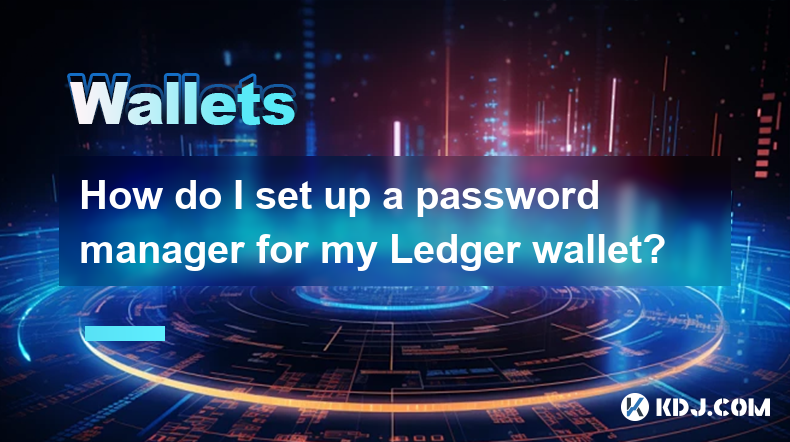
How do I set up a password manager for my Ledger wallet?
Apr 10,2025 at 11:50am
Setting up a password manager for your Ledger wallet is an essential step in enhancing the security of your cryptocurrency assets. A password manager helps you generate, retrieve, and keep track of complex passwords, ensuring that your Ledger wallet remains secure. In this article, we will guide you through the process of setting up a password manager s...
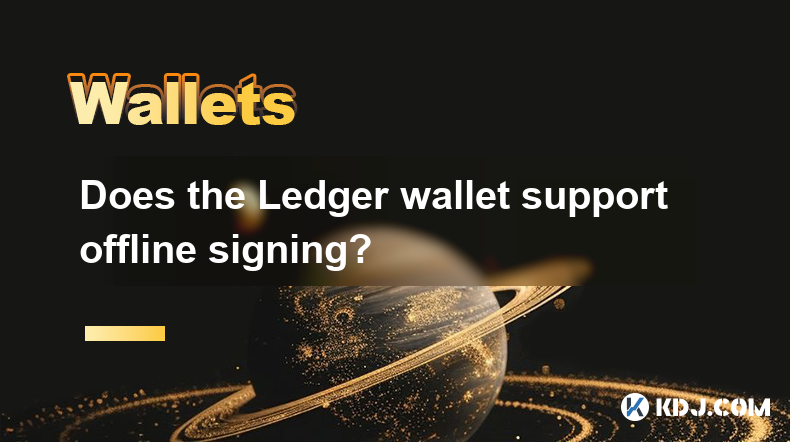
Does the Ledger wallet support offline signing?
Apr 09,2025 at 04:49am
Introduction to Ledger Wallet and Offline SigningThe Ledger wallet is a popular hardware wallet used by cryptocurrency enthusiasts to securely store their digital assets. One of the key features that users often inquire about is offline signing. Offline signing, also known as cold signing, is a security measure that allows users to sign transactions wit...
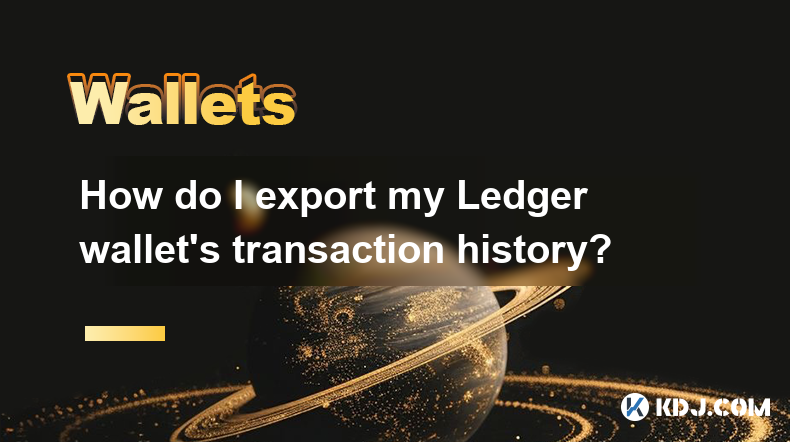
How do I export my Ledger wallet's transaction history?
Apr 10,2025 at 10:15am
Exporting your Ledger wallet's transaction history can be a crucial step for managing your cryptocurrency assets effectively. Whether you need this data for tax purposes, portfolio tracking, or simply for record-keeping, understanding how to access and export this information is essential. In this article, we will guide you through the process of export...
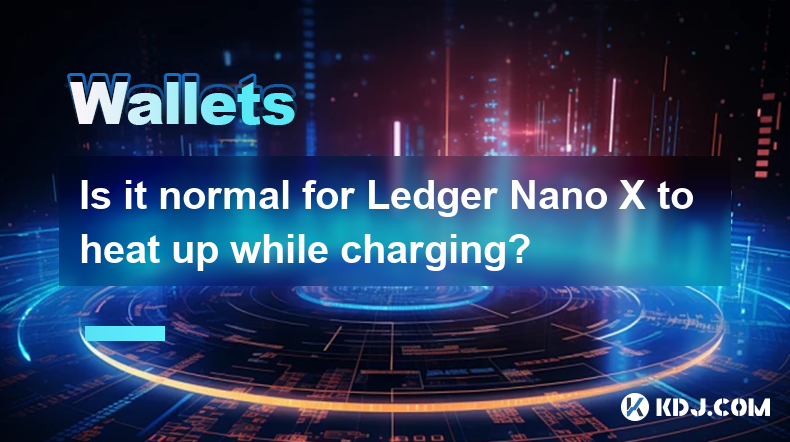
Is it normal for Ledger Nano X to heat up while charging?
Apr 09,2025 at 04:01pm
Is it normal for Ledger Nano X to heat up while charging? When using a hardware wallet like the Ledger Nano X, it's common for users to have concerns about the device's behavior, especially when it comes to heat generation during charging. This article will delve into the reasons behind the Ledger Nano X heating up while charging, whether it's normal, a...
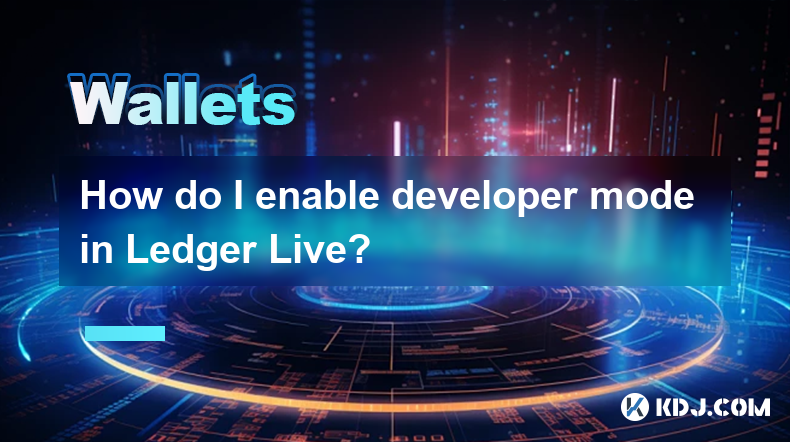
How do I enable developer mode in Ledger Live?
Apr 10,2025 at 05:49am
Enabling developer mode in Ledger Live can be a useful feature for advanced users who want to access experimental features or test new functionalities. This guide will walk you through the process of enabling developer mode in Ledger Live, ensuring you understand each step thoroughly. Understanding Developer ModeDeveloper mode in Ledger Live allows user...
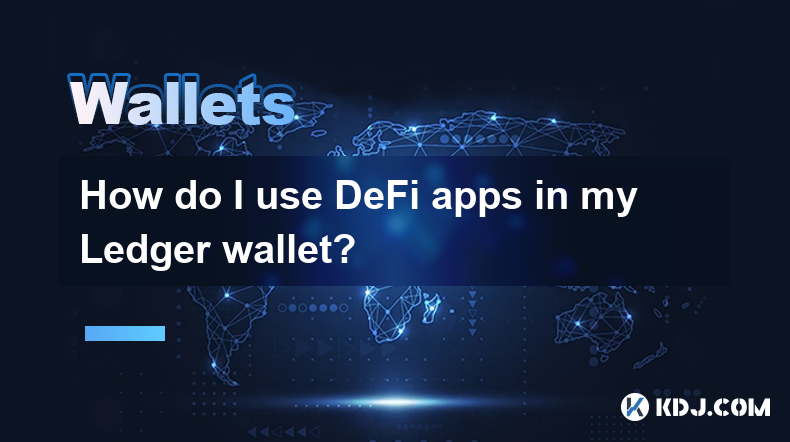
How do I use DeFi apps in my Ledger wallet?
Apr 10,2025 at 11:28am
Using DeFi apps with your Ledger wallet allows you to interact with decentralized finance platforms securely. This guide will walk you through the process of setting up and using DeFi apps with your Ledger device, ensuring your assets remain safe while you explore the world of DeFi. Setting Up Your Ledger Wallet for DeFiBefore you can use DeFi apps with...

How do I set up a password manager for my Ledger wallet?
Apr 10,2025 at 11:50am
Setting up a password manager for your Ledger wallet is an essential step in enhancing the security of your cryptocurrency assets. A password manager helps you generate, retrieve, and keep track of complex passwords, ensuring that your Ledger wallet remains secure. In this article, we will guide you through the process of setting up a password manager s...

Does the Ledger wallet support offline signing?
Apr 09,2025 at 04:49am
Introduction to Ledger Wallet and Offline SigningThe Ledger wallet is a popular hardware wallet used by cryptocurrency enthusiasts to securely store their digital assets. One of the key features that users often inquire about is offline signing. Offline signing, also known as cold signing, is a security measure that allows users to sign transactions wit...

How do I export my Ledger wallet's transaction history?
Apr 10,2025 at 10:15am
Exporting your Ledger wallet's transaction history can be a crucial step for managing your cryptocurrency assets effectively. Whether you need this data for tax purposes, portfolio tracking, or simply for record-keeping, understanding how to access and export this information is essential. In this article, we will guide you through the process of export...

Is it normal for Ledger Nano X to heat up while charging?
Apr 09,2025 at 04:01pm
Is it normal for Ledger Nano X to heat up while charging? When using a hardware wallet like the Ledger Nano X, it's common for users to have concerns about the device's behavior, especially when it comes to heat generation during charging. This article will delve into the reasons behind the Ledger Nano X heating up while charging, whether it's normal, a...

How do I enable developer mode in Ledger Live?
Apr 10,2025 at 05:49am
Enabling developer mode in Ledger Live can be a useful feature for advanced users who want to access experimental features or test new functionalities. This guide will walk you through the process of enabling developer mode in Ledger Live, ensuring you understand each step thoroughly. Understanding Developer ModeDeveloper mode in Ledger Live allows user...

How do I use DeFi apps in my Ledger wallet?
Apr 10,2025 at 11:28am
Using DeFi apps with your Ledger wallet allows you to interact with decentralized finance platforms securely. This guide will walk you through the process of setting up and using DeFi apps with your Ledger device, ensuring your assets remain safe while you explore the world of DeFi. Setting Up Your Ledger Wallet for DeFiBefore you can use DeFi apps with...
See all articles





















































































